Born in 1907, Daphne du Maurier was often considered a “romantic novelist,” though she herself never liked the term, preferring instead to be associated with the “sensation novels” of the late 19th century, popularized by writers such as Wilkie Collins.
Her most popular and best-known book was Rebecca, first published in 1938 and adapted to the screen several times, most famously by Alfred Hitchcock in 1940. Since its initial release, it has never gone out of print, winning the author the National Book Award and named one of the “nation’s best-loved novels” by the BBC in 2003.
Of course, Rebecca is far from the only classic to have come from Daphne du Maurier’s pen. Hitchcock had previously adapted her 1936 novel Jamaica Inn, and would later transform her short story “The Birds” into one of his most successful and enduring masterpieces. Other popular and oft-filmed works include My Cousin Rachel and her short story “Don’t Look Now,” which was adapted to the screen by Nicolas Roeg in 1973.
But Daphne du Maurier was a prolific author of tales which, in the words of her biographer, Margaret Forster, “satisfied all the questionable criteria of popular fiction, and yet satisfied too the exacting requirements of ‘real literature,’” and her best-known books are only a small sampling of her impressive oeuvre. Here are 8 more haunting books by Daphne du Maurier that you may not have heard of… but should definitely read.
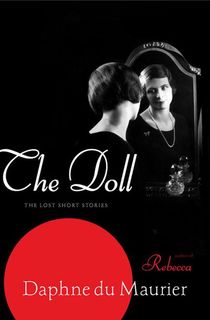
The Doll
Alongside her many celebrated novels, Daphne du Maurier also wrote a number of short stories, some of them joining the ranks of all-time classics.
In The Doll, thirteen of her earliest short stories are collected, all of them written before her 23rd birthday, some of them in print for the first time since the 1930s, in a book that “vividly portrays with humor, candidness, and detail du Maurier’s fascination with the problems of human connection” (Publishers Weekly). The result is a “delectably florid” (New York Times Book Review) collection that shows that, even at a young age, du Maurier’s “storytelling gifts [were] formidable” (Kirkus Reviews).
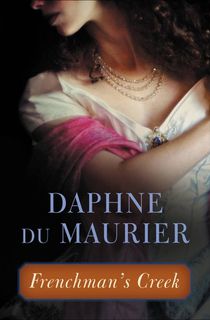
Frenchman's Creek
Du Maurier followed up the massive success of Rebecca with this novel of “highly personalized adventure, ultra-romantic mood, and skillful storytelling” (New York Times) set in the England of the 1600s.
As Lady Dona leaves behind a life of boredom in London, she finds more adventure than she bargained for in the arms of a French pirate sought by all of Cornwall—an adventure that will leave her to make the ultimate choice between her lover’s life and her own future in this novel that “will capture your imagination with more stealth, speed, and skill than any of her pirates ever could” (The Literate Housewife).
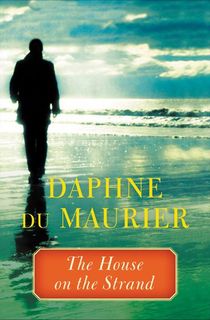
The House on the Strand
One of Daphne du Maurier’s final novels, published just two decades before her death, The House on the Strand has been hailed by the New York Times as “prime du Maurier.”
In it, discontented moderner Dick Young is given a rare opportunity: sampling a newly created potion that allows him to mentally travel back in time to 14th century Cornwall, where he becomes obsessed with the lives he witnesses there, particularly the lovely Lady Isolda. But what will his newfound abilities cost him, and can a man truly live a life in two different time periods at once?
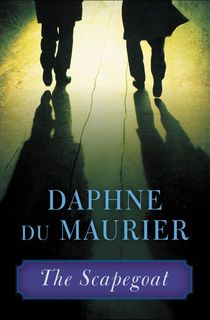
The Scapegoat
Adapted twice to film—once with Alec Guinness in the lead—this 1957 book is “a dazzlingly clever and immensely entertaining novel” (New York Times) about mistaken identity and the dark side of the self. When John and Jean meet by chance at a bar in Le Mans, they are shocked to find that they look and sound exactly like one another, even though one is English and the other French.
As they drink together, John laments the failures of his life, only to awaken and find that Jean has stolen his clothes and his identity. Reluctantly taking on the role of the departed Frenchman, John must try to sort out how to live in someone else’s shoes.
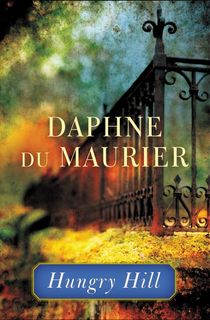
Hungry Hill
Daphne du Maurier’s seventh novel is a sprawling family saga chronicling the lives of five generations of the Brodrick family, whose lineage is cursed by a rival when patriarch Copper John Brodrick builds a mine at the eponymous Hungry Hill.
This “poignant and powerful” (Daily Mail) book explores how the mines “swallow up” the lives of each of the family’s male descendants in turn, and show that du Maurier “can conjure up tragedy, horror, tension, suspense, the ridiculous, the vain, the romantic” and more (Good Housekeeping).
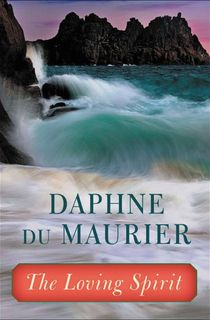
The Loving Spirit
Seven years before Rebecca catapulted her to literary stardom, Daphne du Maurier published her first novel, a heavily researched bit of historical fiction based on real-life families and places near Boddinick, Cornwall, where du Maurier was living at the time.
Inspired by the chance discovery of a wrecked ship, The Loving Spirit tells the story of four generations of the Coombe family, and demonstrates that, even when she was just getting started as a writer, Daphne du Maurier was already a talent who “has no equal” (Sunday Telegraph).
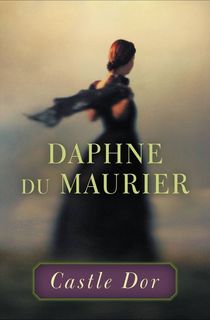
Castle Dor
Sir Arthur Quiller-Couch—better known by the pseudonym “Q”—was a legendary British novelist and literary critic who passed away in 1944, leaving behind an unfinished last novel. This was passed along to Daphne du Maurier, who completed it in 1961 and published it as Castle Dor, a retelling of the story of Tristan and Isolde, updated to 19th century Cornwall, where so many of du Maurier’s novels and stories are set.
In du Maurier’s expert hands, the last novel by the celebrated “Q” becomes a “spellbinding” work filled with “all the familiar ingredients of passion, jealousy and tragic love” (Manchester Evening News).
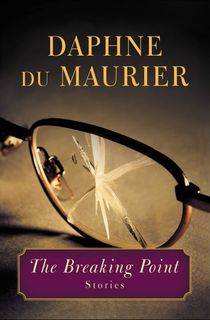
The Breaking Point
We began this list with a collection of some of Daphne du Maurier’s earliest short stories, so it only seems fair that we end it with a collection of some of her best. Written after du Maurier herself had nearly suffered a severe nervous breakdown, these tales have been described as “the means by which she wrote herself back to sanity.”
They concern themselves with “the moment in life when emotion or reason reaches the point of tension beyond which something snaps” and showcase the place where “du Maurier’s peerless craftmanship, her eerie sense of the macabre, her gift for sheer storytelling come to full fruition” (Kirkus Reviews).
